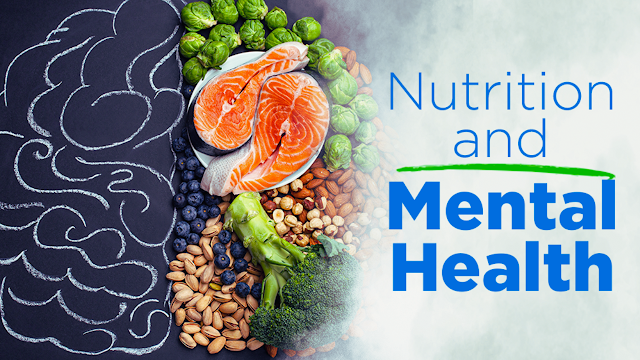In recent years, the connection between mental health and nutrition has garnered significant attention. As we delve into this critical subject, it's essential to recognize how certain foods and dietary patterns can have profound effects on mental well-being. This article explores the growing body of evidence that supports the role of nutrition in managing and potentially reducing the symptoms of anxiety and depression.
The Gut-Brain Axis: Understanding the Connection
The gut-brain axis refers to the complex communication network that links the gastrointestinal tract and the brain. Emerging research indicates that this bidirectional communication plays a crucial role in mental health. The gut is often referred to as the "second brain" due to its vast network of neurons and the production of neurotransmitters like serotonin, which regulates mood.
Microbiota—the diverse community of bacteria in the gut—has a significant impact on this axis. A balanced gut microbiota is essential for maintaining good mental health, as imbalances can lead to inflammation and disruptions in neurotransmitter production, contributing to mood disorders.
Nutritional Deficiencies and Their Impact on Mental Health
Certain nutritional deficiencies are linked to the development and exacerbation of mental health conditions. For instance:
Omega-3 Fatty Acids: These essential fats, found in fatty fish like salmon and mackerel, are vital for brain health. Low levels of omega-3s have been associated with an increased risk of depression and anxiety.
Vitamin D: Known as the "sunshine vitamin," Vitamin D is crucial for brain function. A deficiency in this vitamin is linked to mood disorders, including seasonal affective disorder (SAD).
B Vitamins: Particularly B6, B12, and folate, these vitamins play a role in producing neurotransmitters like serotonin and dopamine. A lack of B vitamins can lead to increased levels of homocysteine, a compound associated with depression.
Foods That Support Mental Health
Incorporating certain foods into your diet can have a positive impact on mental health. Here are some nutrient-dense options that can help reduce symptoms of anxiety and depression:
1. Fatty Fish
Rich in omega-3 fatty acids, fatty fish like salmon, sardines, and mackerel are known to support brain health. Omega-3s have anti-inflammatory properties and are essential for cognitive function and mood regulation.
2. Fermented Foods
Foods like yogurt, kefir, sauerkraut, and kimchi are rich in probiotics, which support gut health by promoting a balanced microbiota. A healthy gut can lead to improved mental clarity and reduced anxiety.
3. Leafy Greens
Dark leafy greens such as spinach, kale, and Swiss chard are high in folate, a B vitamin linked to the production of serotonin. These vegetables also provide antioxidants that help protect brain cells from oxidative stress.
4. Nuts and Seeds
Nuts and seeds, particularly walnuts, flaxseeds, and chia seeds, are excellent sources of omega-3 fatty acids and magnesium. Magnesium has been shown to help manage stress and improve sleep quality, both of which are crucial for mental health.
5. Whole Grains
Whole grains like oats, quinoa, and brown rice are rich in B vitamins and fiber, which can help regulate blood sugar levels and improve mood. These foods provide a steady source of energy and support neurotransmitter function.
6. Berries
Berries, especially blueberries, are packed with antioxidants and phytonutrients that support brain health. They can help reduce oxidative stress and inflammation, which are linked to depression and cognitive decline.
Dietary Patterns and Mental Health
Beyond individual foods, overall dietary patterns play a significant role in mental health. Studies have shown that a Mediterranean diet, characterized by high consumption of fruits, vegetables, whole grains, nuts, seeds, and olive oil, is associated with a lower risk of depression. This diet is rich in anti-inflammatory compounds and nutrients that support brain health.
Conversely, diets high in processed foods, sugars, and unhealthy fats are linked to an increased risk of mental health disorders. The Western diet, which is high in refined sugars, trans fats, and processed foods, has been associated with higher rates of depression and anxiety. These foods can lead to inflammation, insulin resistance, and dysregulation of neurotransmitters.
The Role of Hydration in Mental Health
Hydration is often overlooked in discussions about mental health, but it is vital for brain function. Dehydration can lead to cognitive impairments, mood swings, and increased stress levels. Drinking adequate amounts of water throughout the day can help maintain mental clarity and emotional stability.
Mindful Eating for Mental Well-being
Practicing mindful eating can enhance the benefits of a nutritious diet. Mindful eating involves paying attention to the sensory experience of eating, including the taste, texture, and aroma of food, as well as recognizing hunger and fullness cues. This practice can reduce emotional eating, improve digestion, and promote a healthier relationship with food, all of which contribute to better mental health.
Supplements and Mental Health
While obtaining nutrients from food is ideal, certain supplements can be beneficial for those struggling with mental health issues:
Omega-3 Supplements: For individuals who do not consume enough fatty fish, omega-3 supplements can help support brain health and reduce symptoms of depression.
Probiotics: Supplements containing live beneficial bacteria can support gut health and, by extension, improve mental well-being.
Vitamin D: Especially in regions with limited sunlight, vitamin D supplements can help prevent deficiency and reduce the risk of depression.
B Vitamins: For those with dietary restrictions or absorption issues, B vitamin supplements can help maintain optimal levels and support neurotransmitter production.
Conclusion: The Power of Nutrition in Mental Health
As the connection between nutrition and mental health becomes increasingly clear, it's evident that what we eat profoundly affects our mood and cognitive function. By prioritizing a diet rich in whole, nutrient-dense foods, and being mindful of dietary patterns, we can support our mental well-being and reduce the risk of anxiety and depression.
For anyone looking to improve their mental health, it is essential to consider the role of diet and make informed choices that nourish both the body and mind.

